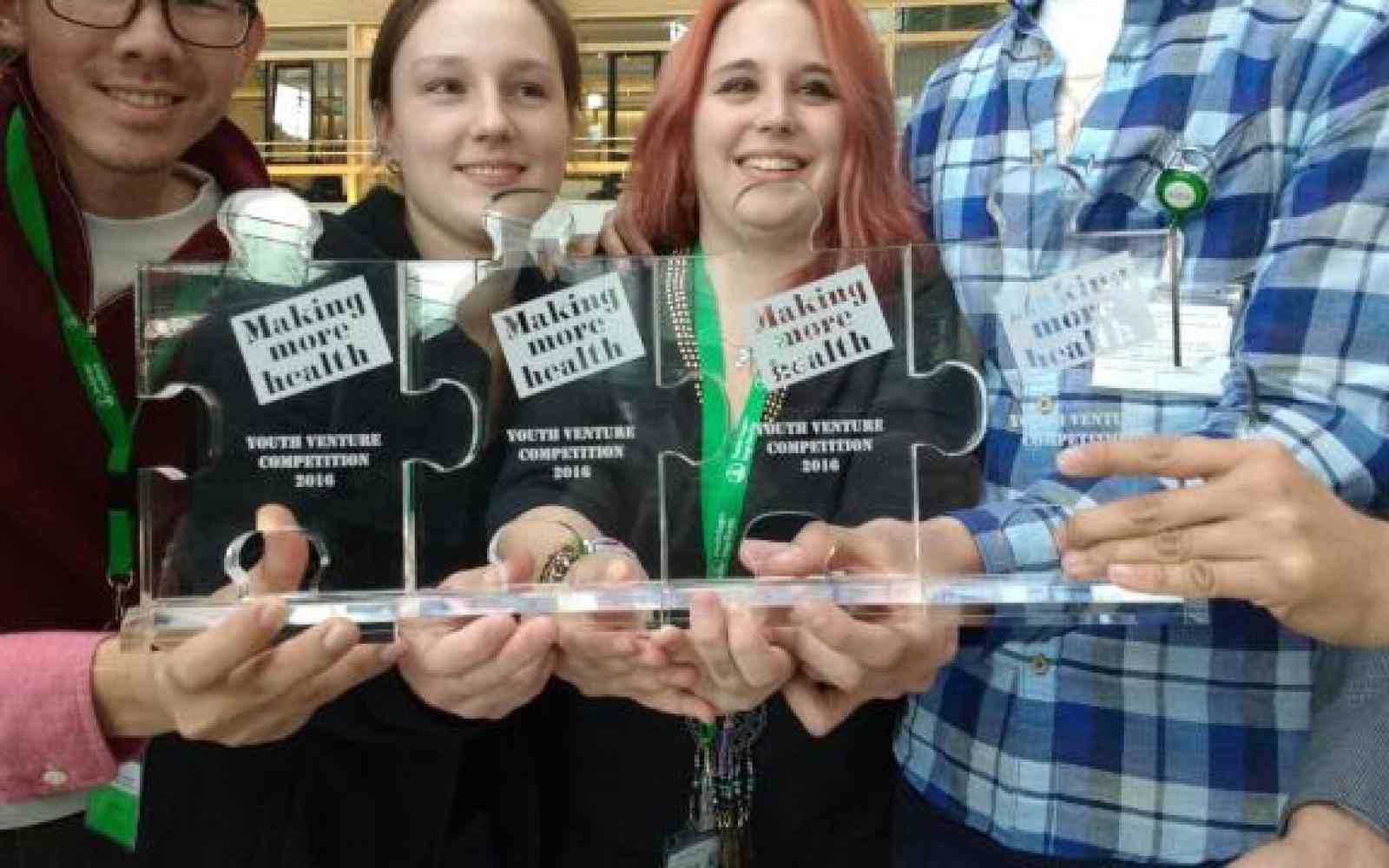All of us are living in a time where mental health and well-being are challenged in unprecedented ways: be it from global economic crises, war, high youth unemployment to the rising tide of cyber bullying and the pressure to succeed in a world where the only constant is unpredictability and change.
In our global work--with youth organizations, companies, parents and school networks-- we see a developing pattern where more and more young people are identifying challenges to their mental health and well-being. These issues continue to impact their educational development, security and health.
If peer to peer well-being practices are not promoted, and if they are not promoted from adults to young people, there is no safe landscape for changemaking to thrive. For those young persons grappling with mental health disorders, some keep their questions to themselves and go undiagnosed due to a fear of public shaming or peer backlash. Consequently, their security and ability to learn and grow remain at risk.
This is not a small issue that just affects a certain segment of the population. According to the World Health Organization for instance, “Worldwide 10-20% of children and adolescents experience mental disorders.” Promoting mental health and well-being are also integral parts of the Sustainable Development Agenda to transform our world by 2030. These global goals were adopted by the United Nations General Assembly on 25 September 2015.
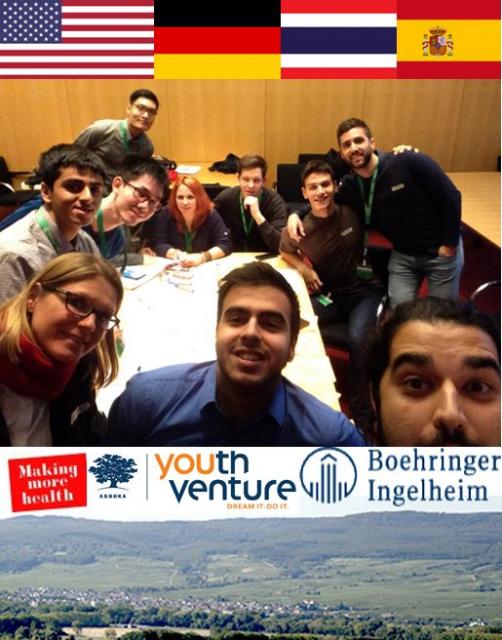
Building collaborative changemaker spaces to disrupt barriers to well-being
What if we brought young engineers, storytellers, mental-health advocates from all over the world to the headquarters of a leading global health-care company to address challenges associated with mental health and the promotion of well-being? What would happen?
We recently teamed up with Boehringer Ingelheim and selected eight bold changemakers to engage in our first-ever #MakingMoreHealth global youth challenge at Boehringer Ingelheim’s headquarters in Germany. Leading social entrepreneurs for Ashoka and the company’s staff and leadership engaged with young changemakers on how to improve our world when it comes to the promotion of mental health and well-being.
They came from all over the world: Thailand, the U.S., Spain and Germany to see what ideas or campaigns they could generate in three days of intensive ideation and changemaker sessions for improving the mental health and overall wellbeing of young people.
This is extraordinary because it demonstrates an active effort to build more fluid collaboration across companies, universities and young changemakers for building an ‘Everyone A Changemaker’ world. To truly tip the world towards sustained mind-set shift that values and nurtures changemaking, all communities of concern have a role to play from the employers to the employees to the university students and young venturers. It’s up to all of us!
Here we provide a run-down of what transpired and what is taking shape!
Day 1
The eight youth finalists had never met or worked together before. Would they end up competing or collaborating? What would the teamwork dynamics be like since each young leader was already running their own organization?
Ashoka’s Youth Venture engaged the national youth teams on ways to build team of teams culture, and we explored with the young leaders what their personal drive was for being changemakers. They engaged in exercises where they grew ‘comfortable being uncomfortable’ and amplified peer to peer empathy by harnessing vulnerability and self-expression as tools for creative collaboration and trust-building. When asked to identify their personal ‘whys’ for pursuing changemaking in their communities, several finalists identified ‘family’ and ‘giving back to family and friends’ as key drivers for their changemaker work. Some also expressed a fear of not succeeding or being judged for trying to do something bold, different and ambitious.
The youth finalists from each country then split into groups to present on the current strengths and weaknesses within their existing individual community-health projects, (see bottom of the page for links to individual youth programs). All shared in the common challenge of measuring whether or not their projects/ventures are actually contributing to the elimination of mental barriers for changemaking and promoting mind-set shifts in culture towards mental health. Peers then shared feedback and ideas to help each finalist’s individual health venture.
Before the end of an intense first day, the national youth teams united to form a global team of teams focused on collaborating globally instead of competing as different countries. They led collaborative brainstorming sessions identifying the current mental health landscape in each of their countries before designing possible campaigns or actions to build out.
The youth global team of teams saw that mental health and the lack of approaches for promoting well-being practices was common across cultures and countries. In the U.S. for instance, suicide is among the top 10 causes of death in America. In Spain, high youth employment and the economic crisis has affected the mental health and well-being of Spain’s youth. In Thailand, cultural norms and societal pressures to always succeed and earn a decent wage threaten the ability for young people to identify and seek support against threats to their well-being or mental health.
By the end of day 1, these eight young leaders—who a day prior had not known each other—had built a space of global collaboration, empathy and creative problem solving inside a company’s headquarters.
Day 2
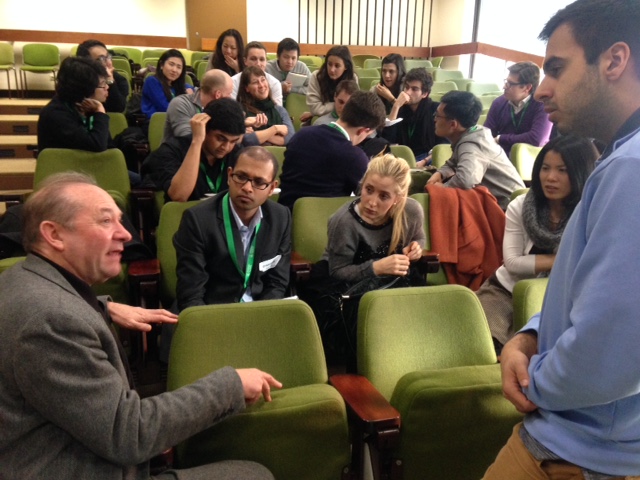
The youth finalists continued with intense brainstorming sessions on what exactly they wanted to build and pitch to Boehringer Ingelheim's staff and leadership for day 3. This was no easy task. Not only were there language barriers, but with every step forward, there were also 10 steps back since one question often uncovered dozens more questions. This is a common path for any changemaker. It is crucial when working in a team of teams to be flexible and to harness frustration as a positive energy you can use to break down walls instead of walking around them.
The pressure mounted as the youth finalists were thrown into a room with more than 50 European Business School students studying social entrepreneurship. Among the students were also Boehringer Ingelheim staff and 3 seasoned social entrepreneurs from the Ashoka Fellowship: Wellington Nogueira, Andreas Heinecke and Lynna Chandra.
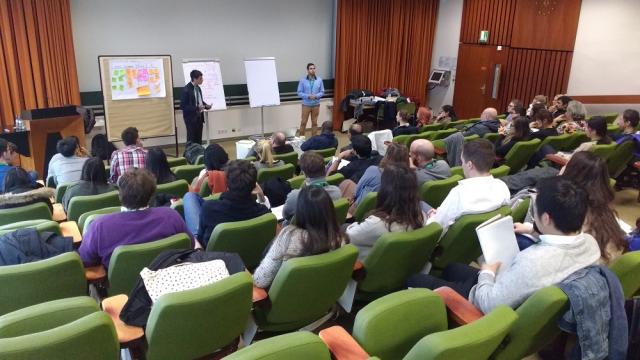
Each of the national youth finalists had the unique opportunity to practice pitching their existing Making More Health projects to the business school students and Fellows for feedback. They then presented their global team of teams idea for improving spaces of well-being for university youth. These were intense grilling sessions where the audience challenged the youth finalists’ methods and ideas. But the young changemakers persevered and embraced the critical feedback as an opportunity to improve and amplify their work through collaboration. The #MakingMoreHealth youth teams mastered pitching, creative problem solving, listening and being comfortable with being uncomfortable.
Andreas, Wellington and Lynna, (pictured above with the youth teams), shared with the Making More Health youth finalists how they navigated moments of ‘failure’ and what keeps them pursuing their changemaker work. For Andreas and Wellington, the concept of ‘failure’ is something that does not actually exist. Failure is a myth, according to the two Fellows. ‘Failure’ is a part of innovation and social change, and not a negative concept as societal norms would have you believe.
Day 3
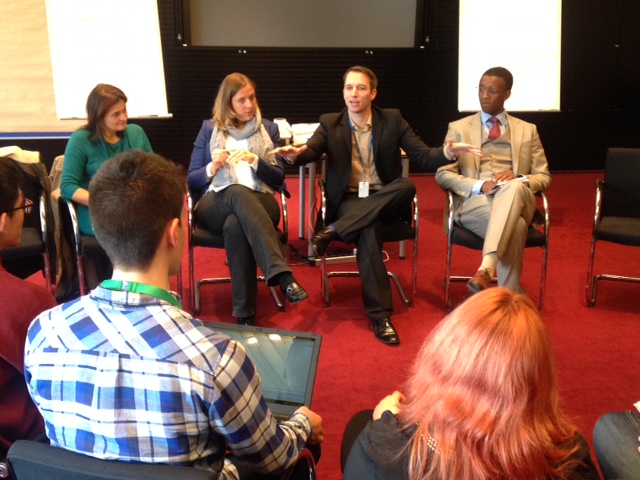
Youth finalists pitched to Boehringer Ingelheim staff and Ashoka Fellows inside Boehringer Ingelheim’s headquarters on day 3. The previous night, youth teams were up till midnight refining their ideas and pitch. The youth ventures demonstrated a collaborative team of teams approach to achieving social good on a common issue instead of competing with one another. After the youth pitches, Boehringer Ingelheim staff shared insights and feedback for how youth finalists could take the project forward. Judges from Boehringer Ingelheim stressed the importance designing roles and responsibilities for the global youth team, and also asked hard questions for why the team wanted to puruse the promotion of well-being. The youth finalists also had the opportunity to ask staff tough questions on why the company wants to engage in changemaking with youth and community health. Company staff members also volunteered to be project mentors to the youth team.
Boehringer Ingelheim presented our youth #MakingMoreHealth finalists with an official award and recognition of their innovation and community health work. Our Global Youth Challenge paralleled a Ashoka-Boehringer Ingelheim event where seasoned social entrepreneurs working on community health led Ted-x style talks and pitched to Boehringer Ingelheim leaders for a chance to win seed funding. (See images here.)
The parallel event offered an exciting opportunity for the young changemakers to meet and network with internationally acclaimed Ashoka Fellows such as Mary Gordon, founder of Roots of Empathy, pictured below. Ashoka Fellow Francesca Fedeli, founder of Fight the Stroke, joined the youth pitch session and provided important feedback to the finalists, (see second picture below). Both Francesca and Mary stressed the importance of not giving up on realizing your idea for social good, even if funders, companies and other stakeholders turn you down. The path to changemaking is not a one-time project or event but it is a journey and process of discovery that requires resilience, according to the Fellows. "It is important to not only create the waves, but it's also crucial to build something to help parnters ride the wave with you," said Mary Gordon.
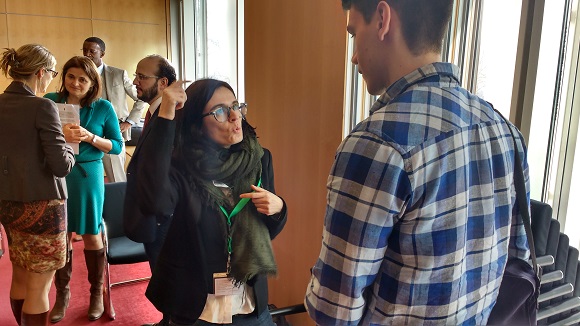
What’s next?
At the end of the third day, our youth finalists held 2 more strategy sessions to refine their idea based on the Boehringer Ingelheim judges’ feedback. They then carved out an action plan where each country identified how they are going to implement the global team’s idea in their existing work at home. Over the next 8 months, the global team of teams will unveil a series of youth-led interventions to enhance spaces for well-being in schools and universities—from student residence halls to community sports centers. Stay tuned to find out how you as a young changemaker can be a part of this global youth effort.
Meet your 'Making More Health' youth finalists
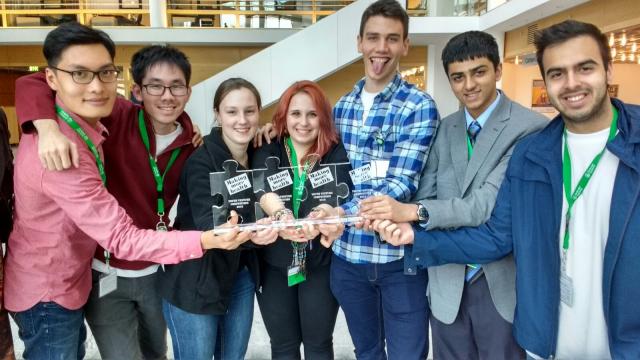
*Pictured from left to right: Mahasak Surakijboworn, Chainatee Tanakulrangson, Susanne Kulzer, Carla Herrero, Enrique Ciriano, Vishnu Shankar, Amit Dodani. (Not pictured is Daniel Nagel)
Ashoka’s Youth Venture (YV) and Boehringer Ingelheim selected 1 to 2 teams from across four countries whom are piloting or already leading their own community health initiatives. Each finalist represents a leading team member of a youth program that demonstrates a commitment to improving community health, and the finalists themselves illustrate a passion to spark sustained social impact that promotes empathy, collaboration, creative problem solving, and fluid leadership.
Spain
Finalists: Enrique Ciriano from the project Dexinde, and Carla Herrero Torrellas from Rompe Silencio
Projects: Dexinde, led by Enrique, promotes social inclusion of people with mental disabilities through sports and education through play. He runs weekly sports workshops where young people play sports with youth living with mental disabilities.
Carla, with her team ‘Rompe el silencio’, runs youth workshops at schools to promote well-being and the awareness of mental health issues affected by young people. Her website is a platform for young people suffering from depression to come together to share stories of perseverance and support.
Thailand
Finalists: Mahasak Surakijboworn and Chainatee Tanakulrangson from Project X
Project: Each year, there are more than 2000 of people in Thailand who are suffering from neurological hand disability. A day without functioning hands is devastating and grueling for both the disabled and their families. The X glove is a technology that will promote self-assistance to neurological patients to do simple hand functions in their daily lives.
Germany
Finalists: Susanne Kulzer of 'Make it real' and Daniel Nagel from 'Youth against AIDS'
Projects: Suzanne is the founder of 'Stay healthy/Make it real‘ which organizes health days and workshops for kids to learn and integrate healthy nutrition habits into their daily lives. Daniel is the leader of Youth Against AIDS, which creates spaces for sex-education and combats social stigmas associated with persons living HIV/AIDS.
USA
Finalists: Amit Dodani from 'My Name My Story' and Vishnu Shankar from project 'WellSpring'
Projects: Amit is the founder of My Name My Story and member of the US Ashoka Youth Council. My Name My Story (MNMS) is an national organization inspiring empathy in changemakers throughout high schools and youth communities.
Vishnu is the team leader of ‘WellSpring’, which won the Youth Venture Making More Health competition at Stanford’s #MedX health Summit in September 2015. WellSpring—which is still in development—will be a campus-wide online tool for students to access mental health services, resources, and trained professionals on their own time within the fast paced lives of under-grad students.
Youth MMH awards
*Learn more about Ashoka’s partnership with Boehringer Ingelheim: Making More Health.
